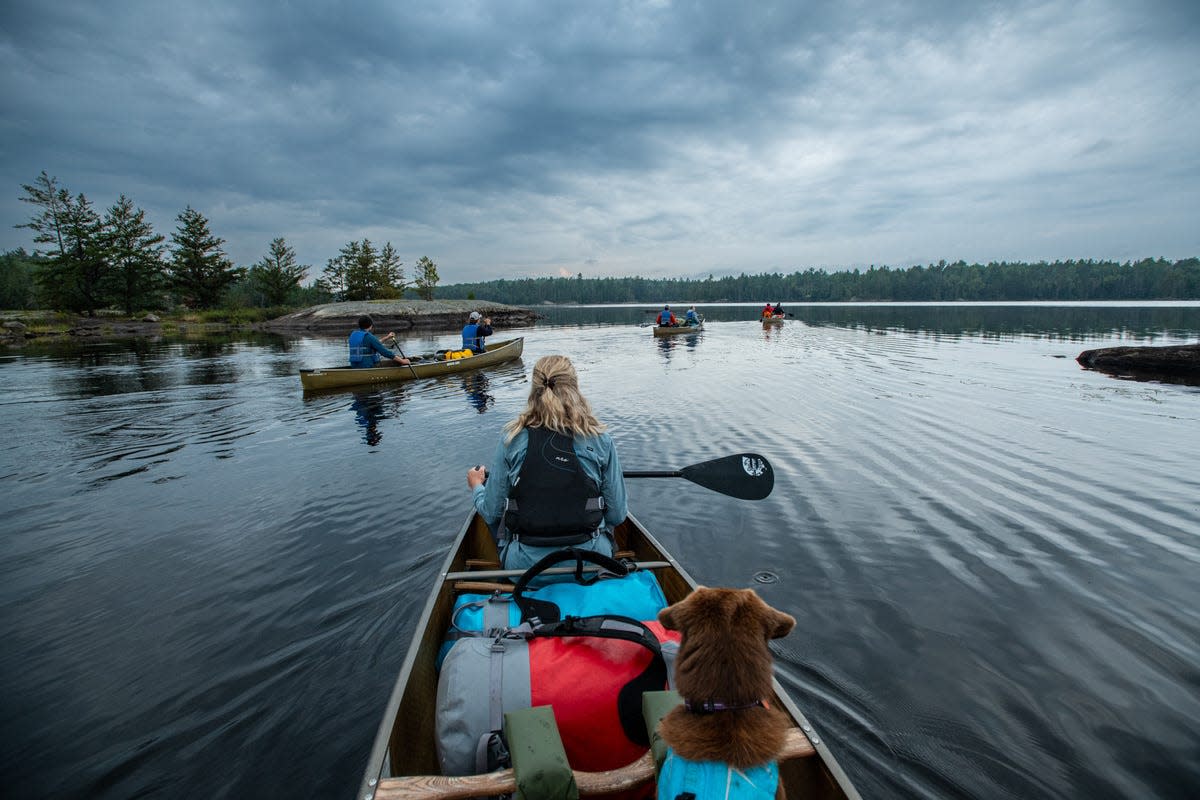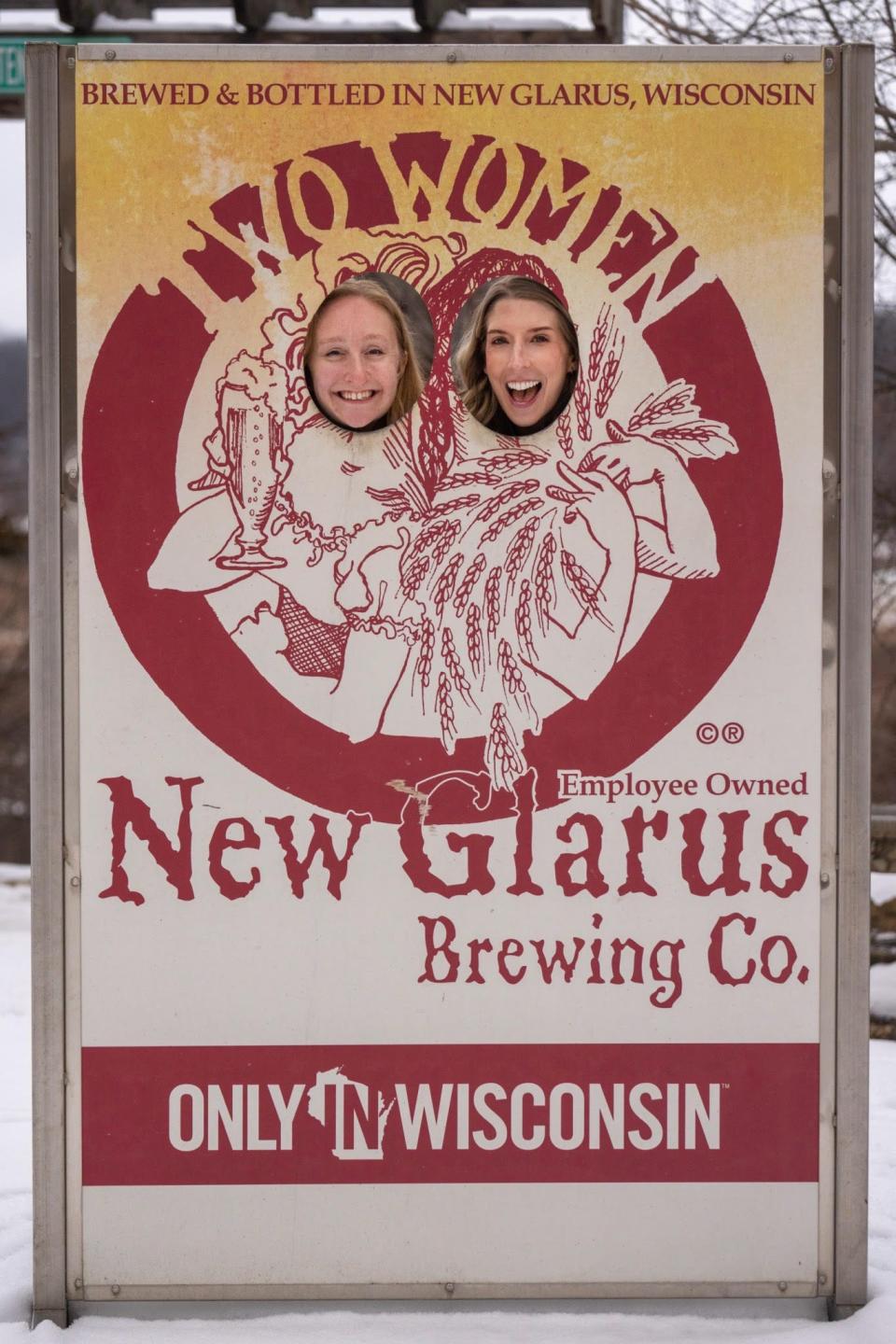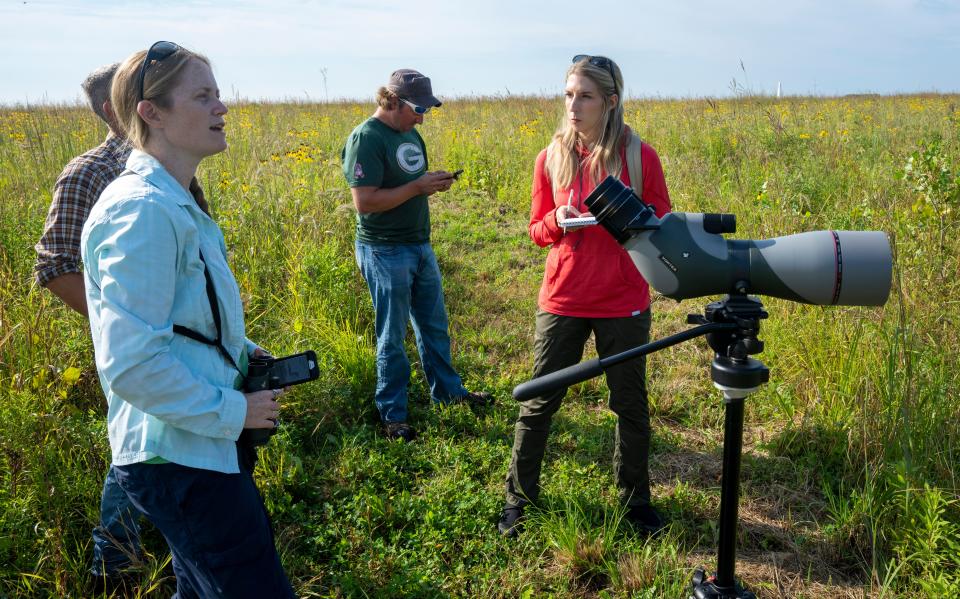Your support helped Journal Sentinel tell stories about Great Lakes. Send me your ideas.

In September, I took my yearly trip to the Boundary Waters Canoe Area Wilderness in northeastern Minnesota. While I've been there a half dozen times now, this last time left a much different impression. After reporting about the Great Lakes for more than a year, I have a much greater awareness that all water is connected.
The Boundary Waters, which sit partially in the Lake Superior watershed, are known for being pristine. And as I prepped for my trip in August − making sure I had just enough snacks for me and my dog, Odessa − I couldn't help but wonder if this was true.
I decided to tack on some reporting before my trip, and I learned that climate change, microplastics and industrial pollution are, in fact, changing the wilderness character of this beloved paddle spot.
This knowledge could have filled my head with doom and gloom. Instead, it led me to truly live in the moment because the Boundary Waters that I love will likely look much different for future generations.
This was one of many stories I was able to tell this past year thanks to our partnership with Report for America, a national service organization that places reporters in newsrooms across the country to cover under-reported topics and help reverse declines in local news coverage.
This past year, I covered how historic low ice cover can upend ecosystems; whether wind energy will someday power the Great Lakes states; and how Enbridge's Line 5 oil pipeline is risking treaty rights. I wrote about how flooding and urban heat islands affect Milwaukee's most vulnerable communities as well as how Lake Michigan affects the city's weather.
Reader curiosity guided my environmental reporting
Last year, I sent out a survey asking readers what stories they wanted to see, and dug into many of these topics. One example is the Milwaukee Estuary area of concern where I wrote several stories, including how:
Wisconsin has four of the most degraded waterways in the Great Lakes basin
PCB cleanup project begins in Milwaukee River. What you need to know.
I told more stories about Lake Superior, like how wild rice and lake sturgeon are rebounding thanks to cleanup efforts along the St. Louis River, which flows between Minnesota and Wisconsin.
What other stories do you want to see? Fill out this survey to let me know.
Water diversions were also on readers' minds, so I wrote about worries over water being diverted out west as well as the historic Waukesha diversion that starting piping in Lake Michigan water this year.
A year of collaborations and connections
In the second half of the year, I led a project on how Indigenous knowledge could be key in navigating climate change in the Great Lakes region. Thanks to funding from the Poynter Institute, myself and two other reporters Madeline Heim, a current Report for America corps member, and Frank Vaisvilas, a former corps member, wrote these additional stories:
Food isn't just a commodity for tribes. What can that teach us?
Tribes do their part to keep air clean. But how can they weigh in on those around them?
Tribes have protected water quality for thousands of years. Now, they have to push to be heard.
I teamed up with Heim on other stories, like how a U.S. Supreme Court decision would impact the Great Lakes and Mississippi River; how climate change is making it harder for Wisconsin brewers to brew beer; and how road salt is polluting Wisconsin's waterways.
Since I started at the Journal Sentinel, I had two opportunities to connect with other reporters throughout the region who cover the Great Lakes through the Institute for Journalism and Natural Resources. These opportunities helped me tell better stories, build trust with sources and learn from other journalists.

Great Lakes coverage is possible because of reader support
Next year, I want to tell stories about mining around Lake Superior and building up coastal resilience. I also want to tell more stories about invasive species, ballast water protections and climate change solutions. I'm also excited to continue my coverage on treaty rights, Enbridge's Line 5 pipeline, and progress across the Great Lakes areas of concern.
But I can't do this important reporting without you.
Support local journalism: Make a tax-deductible donation to help maintain this essential reporting
The newsroom and RFA each pay a share the cost of reporters’ salaries. The local newsroom is required to raise funds for the final portion of the salary to help make the position sustainable. In addition to reporting, reporters are expected to lead a service project related to youth media literacy in their community.
There are four other Report for America corps members in our USA TODAY NETWORK-Wisconsin. At the Journal Sentinel, Madeline Heim covers the Mississippi River basin and Cleo Krejci covers education and workforce development. Danielle DuClos covers K-12 education at the Green Bay Press-Gazette and Madison Lammert covers Wisconsin's child care industry and early childhood education at the Post-Crescent in Appleton.

Three reporters at the Journal Sentinel, Jessica Rodriguez, Sarah Volpenhein and Frank Vaisvilas, served as corps members in Wisconsin and have been promoted to permanent newsroom positions.
As always, thank you for reading and supporting local journalism.
Caitlin Looby is a Report for America corps member who writes about the environment and the Great Lakes. Reach her at clooby@gannett.com or follow her on X @caitlooby.
Please consider supporting journalism that informs our democracy with a tax-deductible gift to this reporting effort at jsonline.com/RFA or by check made out to The GroundTruth Project with subject line Report for America Milwaukee Journal Sentinel Campaign. Address: The GroundTruth Project, Lockbox Services, 9450 SW Gemini Dr, PMB 46837, Beaverton, Oregon 97008-7105.
This article originally appeared on Milwaukee Journal Sentinel: Support Great Lakes coverage with a donation for local reporting

